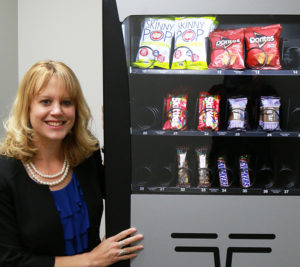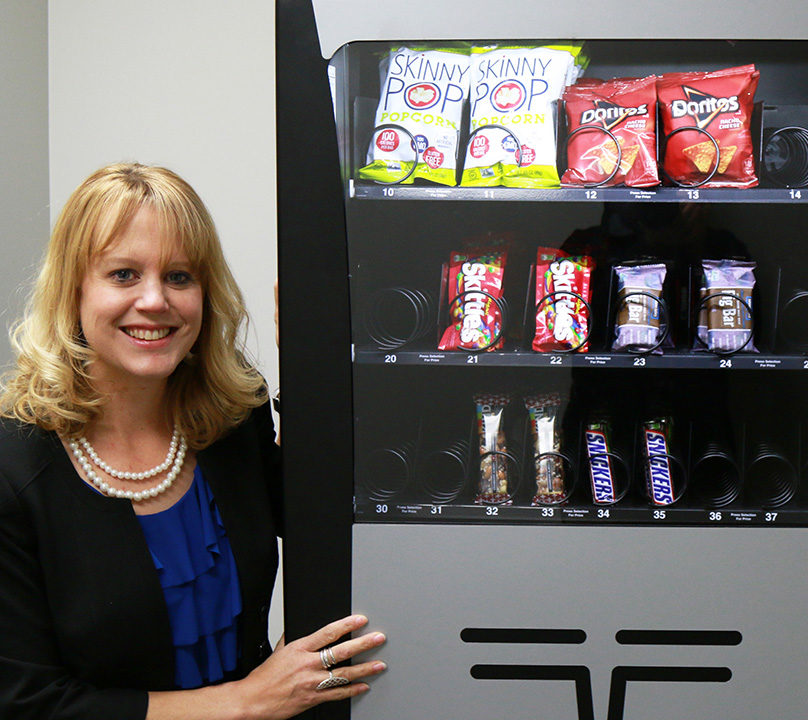By Nathaniel Luce
At a high level, Kelly Haws studies consumer behavior, but much of her research boils down to the elements of choice – how do our perceptions, self-control resources, and access to information guide our decision-making (or not)? These questions have led her to focus on particular domains, namely food and finance.
So when Haws, Assistant Professor of Marketing, became a Chancellor’s Faculty Fellow last year, she used the research grant on a machine that’s all about choices – a vending machine.
“It’s allowing me to present more realistic choices to participants,” she says, “rather than a fictitious choice in an online survey.”
 Professor Kelly Haws poses with latest addition to Owen’s Behavioral Research Lab
Professor Kelly Haws poses with latest addition to Owen’s Behavioral Research Lab
Haws’ December 2016 study on the “healthy = expensive” intuition, conducted before the machine went on-line, made waves in the press after her research found that consumers over-apply the theory that healthier foods cost more, which could potentially lead to shoppers overpaying for nutrition and improperly rating the “healthiness” of ingredients based on their price tag.
Findings such as these lie at a very meaningful intersection of food and finance, and they underscore the potential impact that the vending machine could have on future research, now that Haws can utilize it in Owen’s Behavioral Research Lab.
“A wide range of the research projects I’m working on could involve choices from the machine,” she says. “It opens up a world of possibilities.”
What is Haws using the machine for now? With the related research in the early stages, she notes the intriguing potential to enhance her decision-making research with the new vending machine.
“The more realistic the choice context is for consumers,” Haws says, “the more able we are to capture the underlying dynamics associated with what might otherwise seem like simple decisions.
“The vending machine allows us to study these decision-making processes by changing the product assortments, arrangements, prices, labels, package sizes, presence and prominence of nutritional information, and many other variables that are important to understanding what drives our food choices. And of course, at the end of the day, research participants will be able to actually touch and consume the food that they select.”
Contact Person: Nate Luce Director of Business News and Communications
Contact Phone: 615.322.3469
Contact Email: nate.luce@owen.vanderbilt.edu
